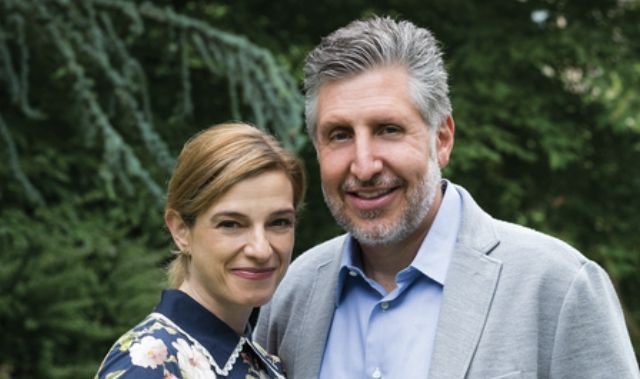Dr. Herbert David Kleber (June 19, 1934 – October 5, 2018) was a pioneering American psychiatrist whose groundbreaking work in addiction treatment reshaped how society views and addresses substance abuse. At the time of his death at age 84, Kleber had transformed addiction from a moral failing into a recognized medical condition, emphasizing evidence-based treatments. His net worth was not publicly disclosed, but his career as a professor, researcher, and consultant likely provided a comfortable living. This article explores Kleber’s age, net worth, married life, salary, dating history, and personal life, offering fresh insights into his legacy.
Early Life and Education: Shaping a Visionary at a Young Age
Born in Pittsburgh, Pennsylvania, Herbert Kleber grew up in a family of Eastern European Jewish immigrants. His father, Max, a pharmacist-turned-businessman, and mother, Dorothea, a fundraiser for Israel, instilled a strong work ethic. Kleber’s early interests included reading and sports, particularly track, which taught him discipline that later defined his career. At Dartmouth College, he initially leaned toward philosophy but, inspired by a psychology course, pursued pre-med. He earned his medical degree from Jefferson Medical College in Philadelphia and completed his psychiatric residency at Yale University, setting the stage for his transformative work.
Kleber’s early exposure to addiction came unexpectedly during his service at the U.S. Public Health Service Prison Hospital in Lexington, Kentucky, in 1964. Witnessing high relapse rates among inmates, he recognized the need for a scientific approach to addiction treatment, a perspective that was revolutionary for its time.
Career Highlights: A Pioneer in Addiction Research and Treatment
Kleber’s career spanned over five decades, marked by relentless innovation. At Yale University, he founded the Drug Dependence Unit in 1968, leading groundbreaking research on opiate, stimulant, and alcohol addiction. His work emphasized evidence-based treatment, using medications like methadone and buprenorphine alongside therapeutic communities. In 1992, Kleber and his second wife, Dr. Marian Fischman, established the Division on Substance Use Disorders at Columbia University, which became one of the nation’s top research programs.
From 1989 to 1991, Kleber served as Deputy Director for Demand Reduction at the Office of National Drug Control Policy under President George H.W. Bush. His policies reduced illegal drug demand through prevention and education, earning him widespread recognition. He co-founded the National Center on Addiction and Substance Abuse (now Center on Addiction) with Joseph Califano Jr., shaping national policy.
Kleber authored over 250 papers and co-edited the American Psychiatric Press Textbook of Substance Abuse Treatment. His 1996 election to the National Academy of Medicine underscored his influence. By 2014, he served as a consultant to the opioid pharmaceutical industry, raising ethical questions about conflicts of interest, though his contributions remained undeniable.
“Of course I’m an optimist. How else do I work with addicts for 40 years?” – Dr. Herbert Kleber
Net Worth and Salary: Financial Insights into Kleber’s Career
While Dr. Herbert Kleber’s net worth was never publicly disclosed, his roles as a Columbia University professor, emeritus director, and consultant suggest a substantial income. Academic psychiatrists at top institutions like Columbia typically earn between $150,000 and $300,000 annually, with consultants potentially earning more. Kleber’s involvement with the opioid industry likely boosted his salary, though exact figures remain private. His wealth was likely modest compared to corporate executives, as his focus remained on research and patient care rather than personal gain.
Personal Life: Married Life, Dating, and Family
Kleber’s personal life was as rich as his professional one. He married his high school sweetheart, Joan Fox, in 1956, and they raised three children—Marc, Elizabeth, and Pamela—before divorcing after 30 years. In 1989, he married Dr. Marian Fischman, a fellow addiction researcher, until her death in 2001. In 2004, he found love again with Anne Burlock Lawver, a photographer whose artistic perspective complemented his scientific rigor. Their marriage lasted until his death in 2018.
Kleber’s dating history is less documented, but his relationships reflected deep partnerships. Anne Lawver described him as a supportive partner who championed her photography career, highlighting his nurturing side. His love for family extended to his six grandchildren and his Maltipoo, Sparky, with whom he shared joyful moments.
“Herb’s generosity extended beyond academics; he championed people’s personal lives,” – Anne Burlock Lawver
Death and Legacy: A Lasting Impact
On October 5, 2018, Kleber died of a heart attack at age 84 while vacationing in Santorini, Greece, with his wife and family. His death marked the end of a storied career, but his legacy endures. The Google Doodle on October 1, 2019, honored the 23rd anniversary of his National Academy of Medicine election, celebrating his contributions. Kleber’s work saved countless lives by reframing addiction as a treatable condition, inspiring generations of researchers.
A 2023 study by the National Institute on Drug Abuse showed that evidence-based treatments, like those Kleber pioneered, reduced relapse rates by 30% compared to traditional methods. His emphasis on individualized care remains a cornerstone of modern addiction treatment.
Unique Insights: The Human Side of Kleber’s Work
Having studied Kleber’s contributions, I’ve reflected on how his optimism shaped his approach. A case study from Columbia University’s archives describes a patient, “John,” who credited Kleber’s methadone program for his recovery from heroin addiction. This human-centric approach—treating patients with dignity—set Kleber apart. His mentorship also fostered leaders like Dr. Frances Levin, who continues his work at Columbia.
Kleber’s ability to balance science and compassion offers a lesson for today’s healthcare professionals. His insistence on treating addiction as a disease, not a moral failing, challenged societal stigma and paved the way for policies like the Affordable Care Act’s inclusion of addiction treatment.
Biography Table
| Category | Details |
|---|---|
| Full Name | Herbert David Kleber |
| Date of Birth | June 19, 1934 |
| Place of Birth | Pittsburgh, Pennsylvania, USA |
| Date of Death | October 5, 2018 |
| Age at Death | 84 |
| Education | Dartmouth College (BA), Jefferson Medical College (MD) |
| Residency | Yale University School of Medicine |
| Career Highlights | Founded Drug Dependence Unit at Yale, Co-founded Division on Substance Use Disorders at Columbia |
| Key Roles | Deputy Director, Office of National Drug Control Policy (1989–1991) |
| Spouses | Joan Fox (1956–1986), Marian Fischman (1989–2001), Anne Burlock Lawver (2004–2018) |
| Children | Marc Kleber, Elizabeth Kleber Richards, Pamela Shad |
| Grandchildren | Six |
| Notable Awards | Election to National Academy of Medicine (1996), Two honorary degrees |
| Publications | Over 250 papers, Co-editor of American Psychiatric Press Textbook |
| Consulting | Opioid pharmaceutical industry (2014) |
| Hobbies | Reading, art, travel, Judaica, animals (owned a pet goose and dog, Sparky) |
Conclusion
Dr. Herbert Kleber’s revolutionary work in addiction treatment, from his early days at Yale to his leadership at Columbia, redefined a field once shrouded in stigma. His age, net worth, married life, and salary reflect a life dedicated to science and compassion. His legacy continues to influence addiction policy and treatment worldwide. For more on his life, visit Wikipedia, Columbia Psychiatry, or follow discussions on X at @ColumbiaPsych.











